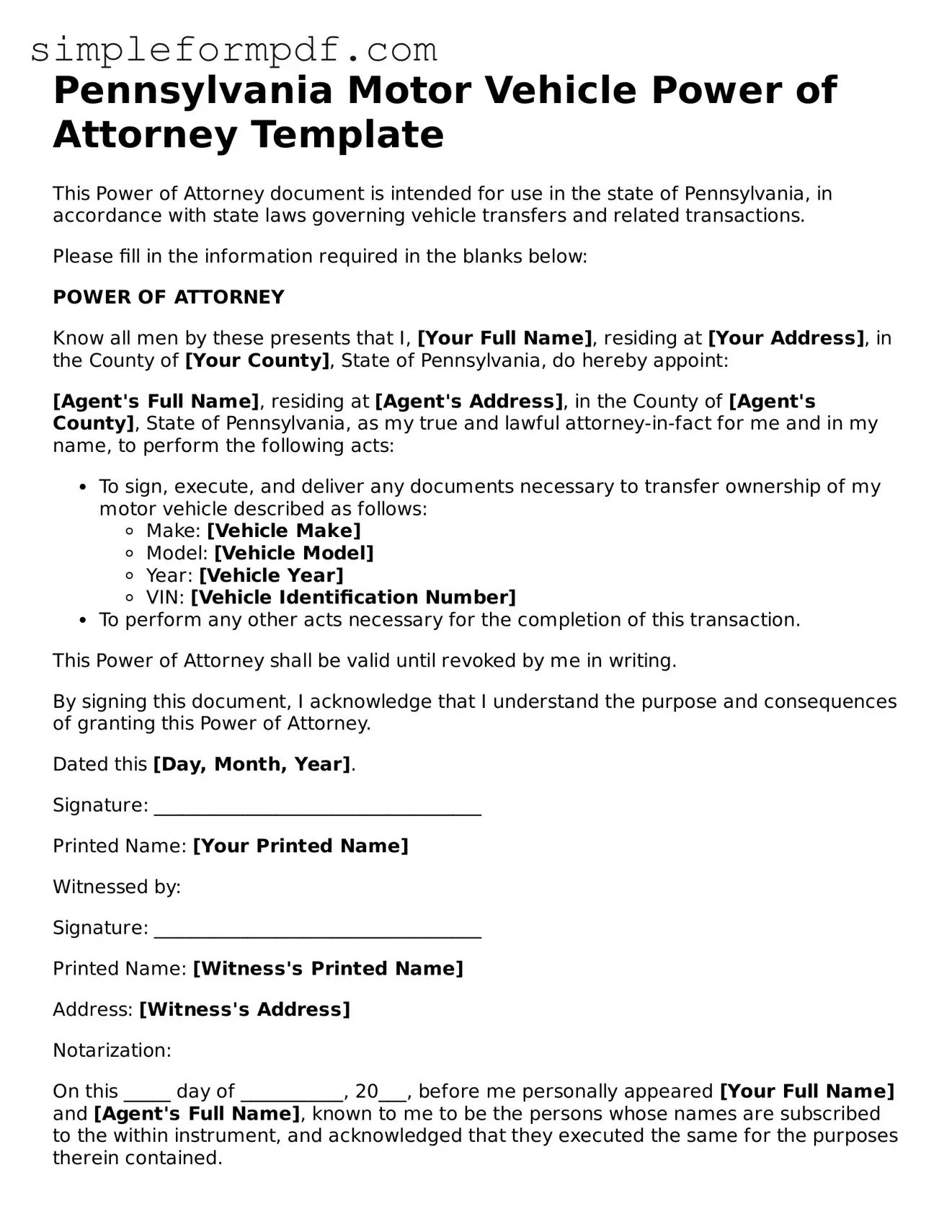Free Motor Vehicle Power of Attorney Form for the State of Pennsylvania
The Pennsylvania Motor Vehicle Power of Attorney form allows you to designate someone to act on your behalf regarding vehicle-related matters. This legal document can simplify processes like title transfers and vehicle registrations, ensuring that your interests are represented even when you cannot be present. To get started, fill out the form by clicking the button below.
Launch Editor

Free Motor Vehicle Power of Attorney Form for the State of Pennsylvania
Launch Editor
Need instant form completion?
Finish Motor Vehicle Power of Attorney online in just a few minutes.
Launch Editor
or
Download PDF
